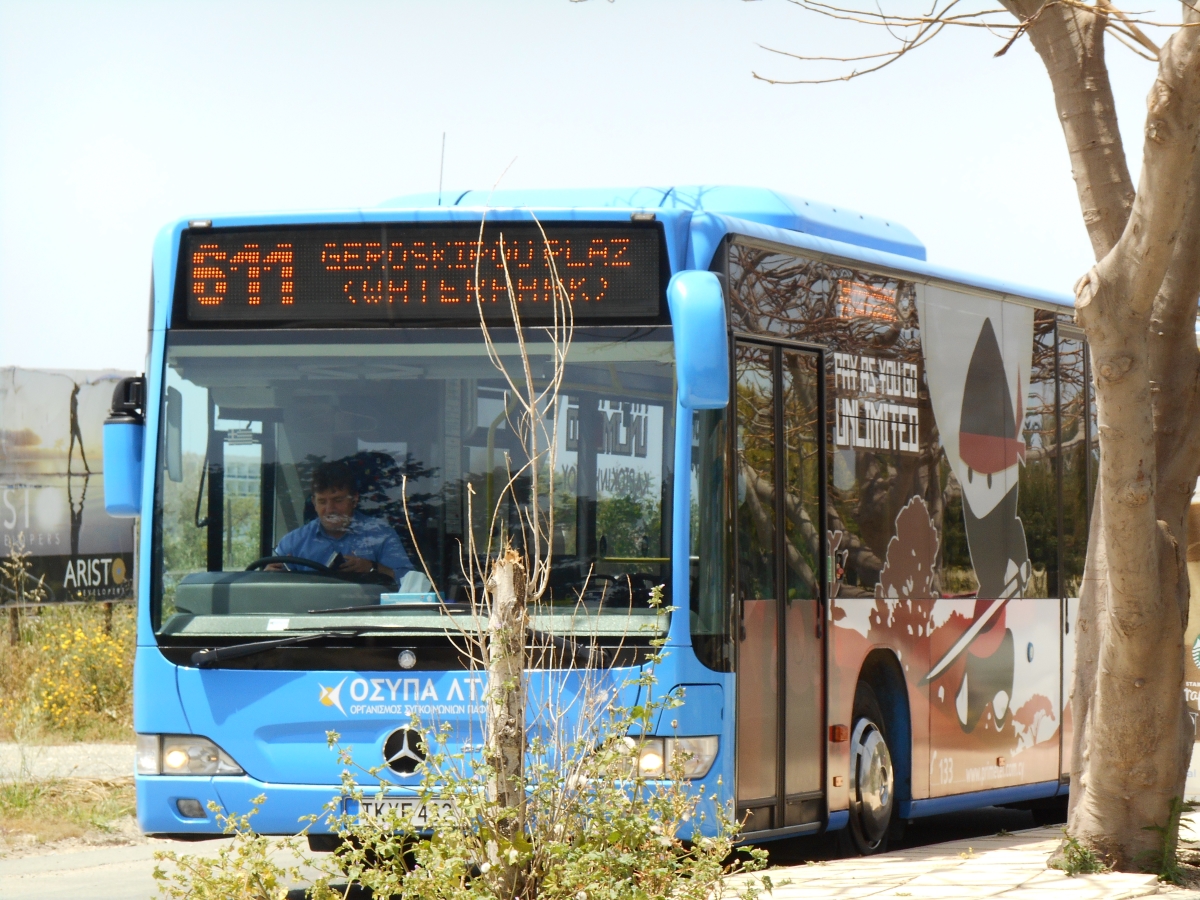It only takes a cabinet minister to get on a bus (twice in 40 days, actually) to realise the poor state of public transport and that what is desperately needed is a general overhaul of infrastructure.
We don’t need a tramline to connect towns, nor a train in the mountain areas, because that will be creating a black hole with money thrown down an endless pit.
Neither will smart displays at bus stops be of any help, if the next bus will take aeons to arrive and never connect routes between them for passengers to hop from one to the other to reach their destination.
When Yiannis Karousos joined Paphos children earlier in the week on their morning bus route to school, he got more than he bargained for.
Apart from waiting on the pavement and eventually sitting on a bus with broken seats, he was rewarded with a mushroom sprouting from the roof, due to the dampness in the poorly maintained vehicle.
A month ago, he was on another bus, this time in Ayia Varvara, when he ordered the vehicle to be immobilised and all school buses to be inspected for health and safety.
Did we need a minister to sit on a bus for this appalling state of public transport to be identified? Doesn’t anybody inspect the buses for safety and emissions? And what next, will a report be written that will end up in a drawer somewhere?
With the cost of fuel continuing to spiral, we need to go back to basics.
First and foremost, trust must be reinstated in the public transport system.
It is heartening that Karousos is the first government minister to declare “I believe in public transport” and actually mean it.
Even the chairman of the employers’ federation got on a bus in Limassol a few weeks ago and discovered a new world, free of angry motorists leading to road rage, or the frustration of finding parking spaces at your destination.
Instead of wasting millions on alternative methods of transport, let’s improve the one we have, which is very promising if done properly.
Routes should transverse so that a student from Engomi can get to the Nicosia general hospital or the University of Cyprus by only changing one, at most two buses. And as long as these are frequent between them.
The same goes for somebody living in Aradippou and working at Larnaca airport, while the Paphos bus company must be the most profitable, as, at any time of the year, the vast majority of passengers are tourists, who have a different culture when it comes to taking the bus.
On the other hand, incentives should be given to unprofitable routes, especially in rural areas, which will, once again, allow for new urban areas to be developed and help cut down on vehicle emissions, traffic jams and parking scarcity.
Ever since the old blue bangers were taken off the streets and retired to ‘car graveyards’, there was a short-lived improvement in bus services with less fumes inhaled.
Even private companies are riding a wave of success with intercity schedules and airport shuttles. Simply, because they are trusted, for frequency, comfort and cost.
There is also room for eco-friendly buses, but there again, the island needs to redefine its energy policy, with more vehicles running on natural gas and biofuels, hybrid or all-electric if the right infrastructure is in place to feed this form of power.
If all public buses will be equipped with fleet tracking GPS systems, to operate the digital displays at all bus stops (hopefully solar powered), then it will be easier to install wi-fi on board all buses, generate data into mobile apps to be aware of the next arrival, and which in turn will allow for contactless card payments.
Will it take months or years for another minister to get on a bus and realise what needs to be done?










